‘Rape culture’ stories revealed; students stand up against sex assault
‘Rape culture’ stories revealed; students stand up against sex assault
Student stories of sexual assault are forcing administrators to offer more sophisticated sex education. Claudine Wong reports
OAKLAND, Calif. - A growing number of Bay Area high school students who say they are tired of sexual misconduct and assault happening on their campuses and at parties have started to take action – and more importantly, are starting to make change.
From Berkeley to Palo Alto, high schoolers say they also want to put an end to harassment – everything from being sexted nudes to being grabbed in school hallways – and worse. This year, hundreds of teens have taken to the streets to protest, hoping to persuade school administrators to update their sexual education curriculums.
One of the most recent actions took place this month, when students at Oakland Tech walked out of class and marched to district headquarters to demand that more be done about sexual assault and "rape culture" on campus.
"Nothing is going to happen unless we make a big thing," said protest organizer Amara Romero. "The administration doesn't want to do anything unless they are under pressure."
And they're not the only ones.
Students at Bishop O'Dowd staged a similar walking this fall, following the creation of a anonymous Instagram page – @ODowdprotectors – that details more than 100 stories of teens who say they were fondled in the school bathroom, filmed without permission and forced to have sex.
One post details a young woman saying she was hit in the head by a guy in the Class of 2024 with her own white Air Force sneakers after a fight, before being pinned down and penetrated she asked him to stop more than 30 times.
Each IG post is prefaced by an all-black screen that alerts readers: "Trigger Warning: S*exual assault/harassment" or "Trigger Warning: R*ape Culture."
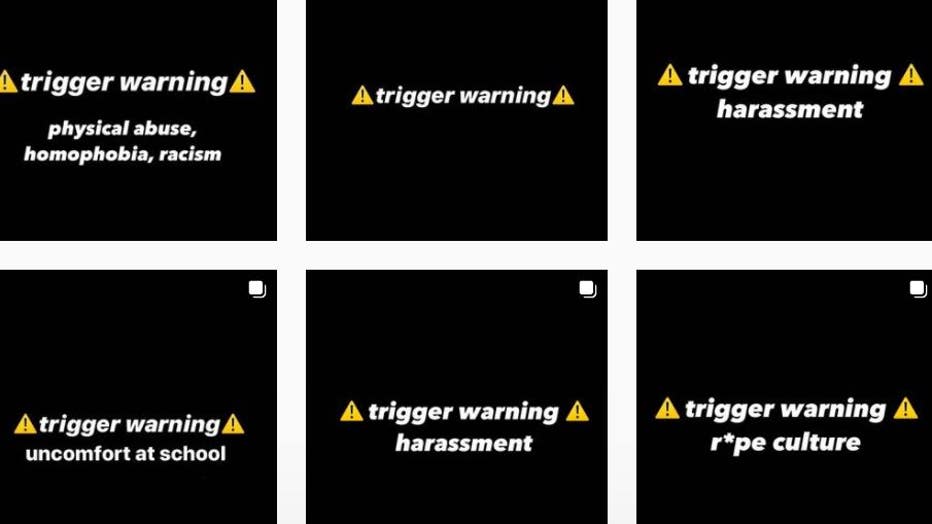
The point of the stories, students say, is to show others they're not alone and serve as a catalyst for an educational revolution.
"The main goal of the account is just to give students at O’Dowd a place to share their story if they don’t really have anyone to talk to," said Kai Macapinlac, a senior who said she was sexually assaulted on school grounds but decided not to press charges because the boys are "popular" and she didn’t feel like she would be believed.
"There are horrible things happening in our schools," she added. "It’s kind of scary that all this stuff is happening and no one’s talking about it."
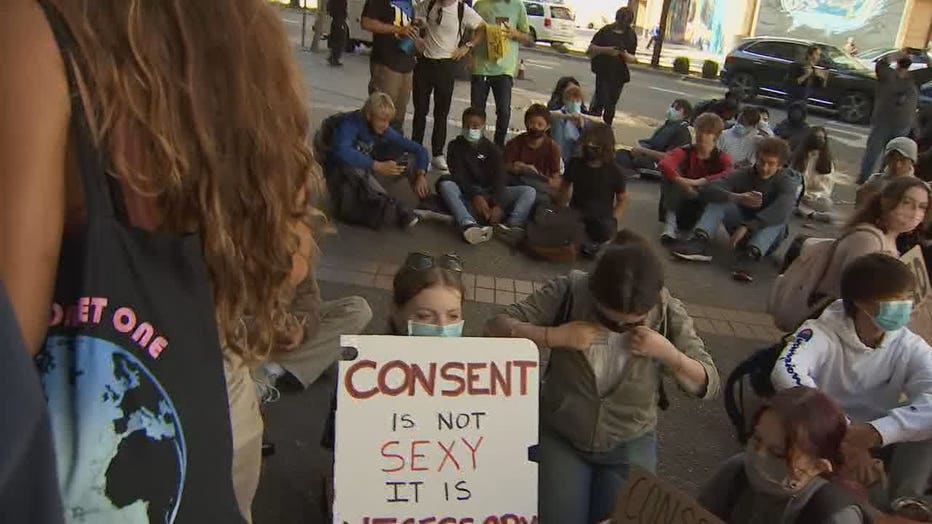
Oakland Tech students today staged a walk-out to protest the lack of education about sex assault. Students walked to OUSD headquarters to demand better reporting systems, among other demands. Nov. 3, 2021
Sex assault, harassment and "rape culture" are normalized
The stories are anonymous, which makes it impossible to verify the posters’ accounts.
But if true, the stories -- of guys pressuring girls to have sex when they were drunk, girls grabbing guy’s crotches and older girls persuading younger girls to send nudes to guys because they don’t want to appear as though they are "slut shamers" -- paint a sad and toxic atmosphere.
Though there is some "cancel culture" fallout of the posts, many say the anonymity is therapeutic.
It’s often intimidating for survivors of sexual assault to tell adults what happened, students say, and writing down experiences without being identified gives authors control of their narratives.
One young woman who asked not to be named told KTVU that when she was a freshman, some young men put their hands over her breasts and grabbed her waist while she was sitting on a couch at a party.
"I didn’t say that was OK," she said. "At first, it’s like, you know, ‘That was weird.’ But then afterwards, it’s like, ‘Hold on.’ This is not an innocent flirt. This is what sexual assault looks like."
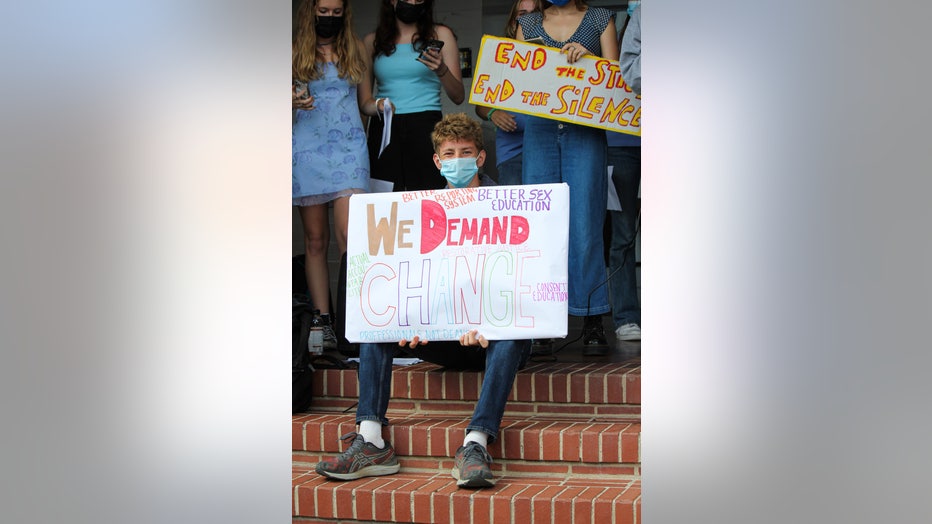
Students speak out against sexual violence at Bishop O'Dowd High School in Oakland on Sept. 27, 2021. Photo: Elyse Brill
Kayla Goodin, the president of the Gender Justice Group, doesn't feel the need to keep her stories private. She wants to shine a light on what happens to her and her friends, which includes regularly getting sent "dick pics."
"The amount of unsolicited nudes that me and my friends have received is insane and absolutely not OK," Goodin said. "I’m just like going through my phone on a daily basis and I’m just like, ‘Whoa. I do not like that."
Samantha Silva, a senior who is part of a group called Solidarity in Action, said much of the problem is that these seemingly innocuous behaviors passed off as jokes become normalized, which creates a pervasive acceptance that sexual harassment and assault are no big deals.
She only started realizing things weren’t right three or so years into high school.
"It’s definitely a culture of people not even realizing what it looks like," she said. "When I look back on it, I think, ‘Wait a second. I can actually name 10 instances of sexual harassment or sexual assault that at the time I considered normal or like, OK, whatever.’ ‘’
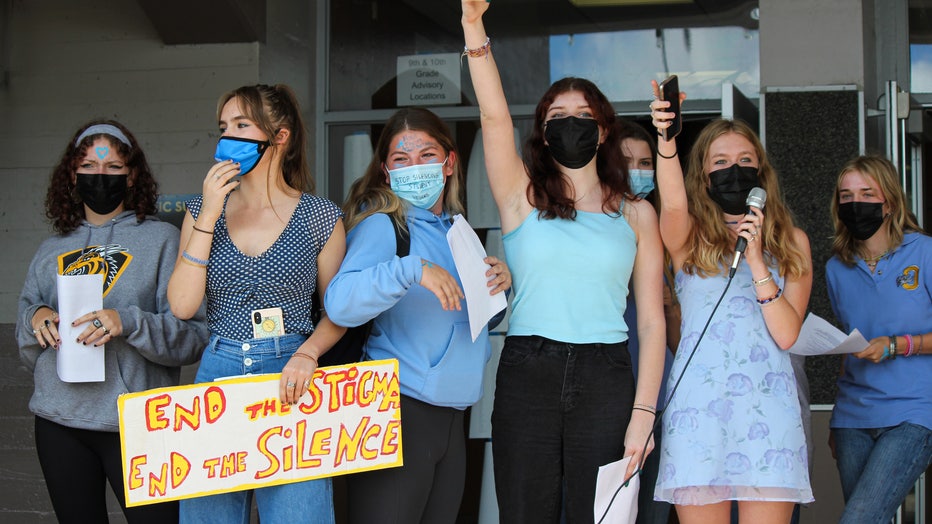
Students speak out against sexual violence at Bishop O'Dowd High School in Oakland on Sept. 27, 2021. Photo: Elyse Brill
#MeToo movement amplified; schools respond
The allegations of regular and rampant unwanted sexual behavior at high schools across the Bay Area come at a time when the #MeToo movement is being amplified from the boardroom to the classroom, and where people in power are trying to address past wrongs and prevent future ones.
In response to the student complaints, the O’Dowd administration vowed to update its curriculum.
Interim Principal Lisa Lomba said the school launched a new digital reporting tool where students can report issues and initiate investigations if warranted. A "consent assembly" with an expert in promoting healthy relationships will be held and there will be annual education for students and families on consent and healthy relationships.
"May we continue to find God in all things, including the many small, daily choices we make to show love, kindness and compassion with one another," she wrote.
Oakland Tech's principal also vowed to make short- and long-term changes.
Students at Berkeley High were first to make noise in February 2020, decrying "rape culture" through an Instagram page, and walking out of school to protest, prompting a change in policies there.
Other high schools, like Oakland School for the Arts and Gunn High school students in Palo Alto, have also emulated this strategy.
What they're asking for? A more sophisticated sex ed curriculum.
Are schools doing enough?
But is what the schools are doing enough? And should more be done to educate students throughout their educational career about what is OK in terms of sex and what is not?
According to sex education expert Julia Feldman, the answers are: not really and definitely yes.
"There’s no one actually going through district by district checking to see what’s being implemented and who’s teaching it and how it’s appearing in the schools," Feldman said. "And what’s often missing are the soft skills and knowledge. Things like consent, responsible decision making, healthy relationships."
She added: "These Instagram accounts are a testament to the fact that there isn’t an effective reporting method in these schools that young people are having to resort to their own technologies. I see it as shedding light on some serious darkness."
Christopher Pepper, a health educator and consultant who lives in Berkeley, thinks that simply hiring a consultant won’t create the long-term cultural change and that all students should have a health class with a credentialed teacher at least once in middle school and once in high school.
Feldman agrees: School districts need to spend more money on sex education and offer more trainings. And that curriculum needs to be worked into the academic experience, "not a one off like an assembly."
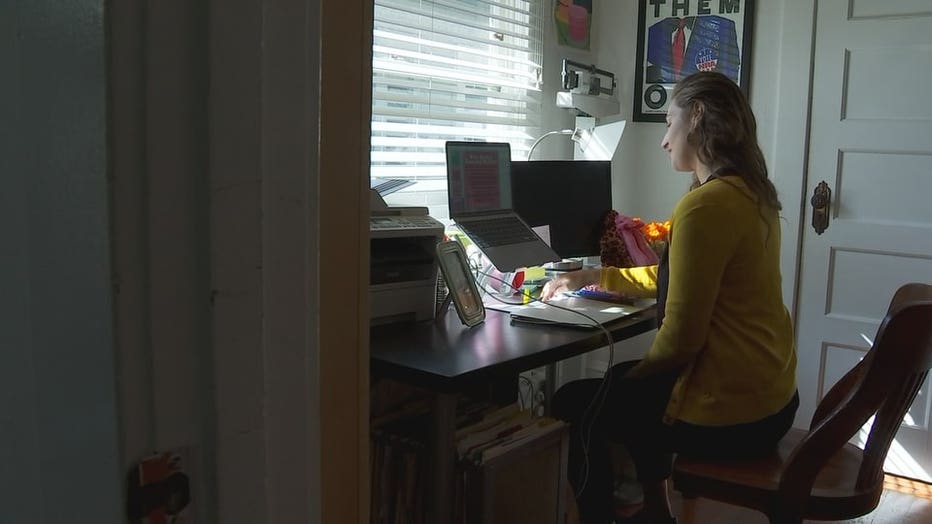
Julia Feldman is a sex educator who says that it's "super scary" that sexual misbehavior is so accepted. She is known for her work, called Giving the Talk, which she bills as "sex ed for this century."
Sex ed in California is mostly left up to individual districts
While the California Healthy Youth Act requires public high schools to develop curriculum that covers the consequences of sexual violence in public schools, the law allows for a lot of leeway on how the curriculum will be taught: School boards and superintendents can select which curriculum and textbooks they will use to teach this material.
There is also no law that mandates the numbers of lessons taught or how the lessons are implemented. And the law only applies to public schools.
And further still, what is actually taught in schools regarding consent and assault ranges from being "inconsistent to non-existent," according to Shafia Zaloom, a health educator who lives in San Francisco.
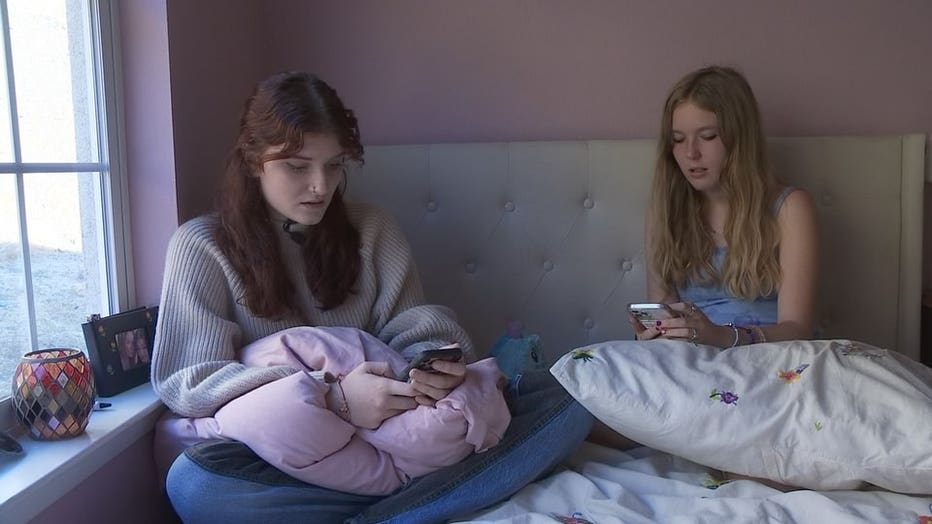
Sylvie Richards and Kalya Goodin, seniors at Bishop O'Dowd, are behind a movement to push for more education around sexual consent.
Status quo will remain without student voices
Sylvie Richards, a senior known for her feminism activism on campus, said she knows that the school can’t bear all the responsibility for what happens. But she feels that the education about consent on campus is little to none. And she also feels that survivors are not taken seriously enough.
"There's a culture of invalidating yourself," she said, " and having people tell you, ‘Oh, that wasn't assault’ or, ‘Oh, that wasn't rape.’"
And she feels this education has to happen at school because not everyone has parents who want to discuss these sensitive topics with their children, and vice versa.
She’s glad that she and her friends pushed the school to do more.
Without their voices, she believes that things would have likely remained status quo.
"I know that the school knew about the issue and was trying to do things," she said. "But until the walkout there wasn't an immediate action taken. There weren't multiple emails sent out to the parents finally pushing out this reporting system. It honestly did seem that this pent-up rage needed to be taken out in a way to show them, ‘OK, this is a schoolwide issue. Now you have to do something.’ A call to action needed to happen."
Lisa Fernandez is a reporter for KTVU. Email Lisa at lisa.fernandez@fox.com or call her at 510-874-0139. Or follow her on Twitter @ljfernandez
Oakland Tech students protest sex assaults
Students at Oakland Tech High School walked off campus Wednesday to protest the schools handling of recent sexual assault allegations.
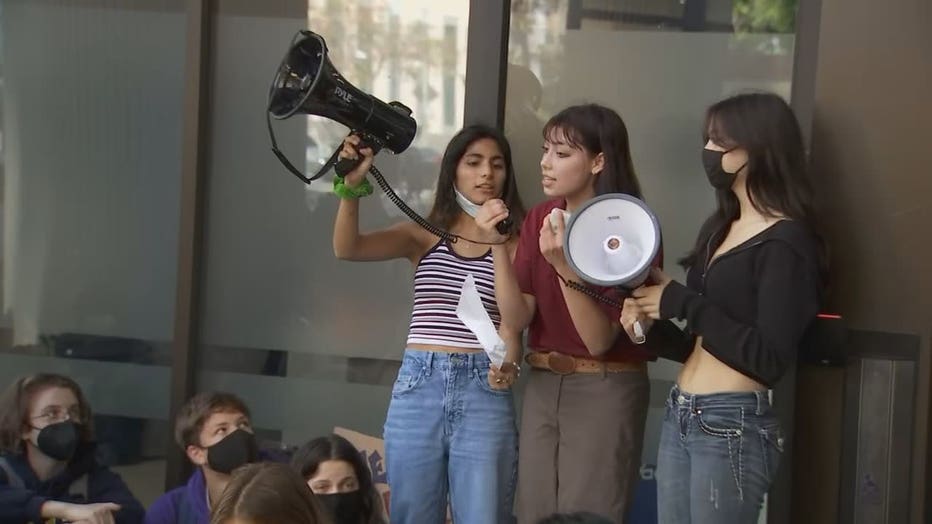
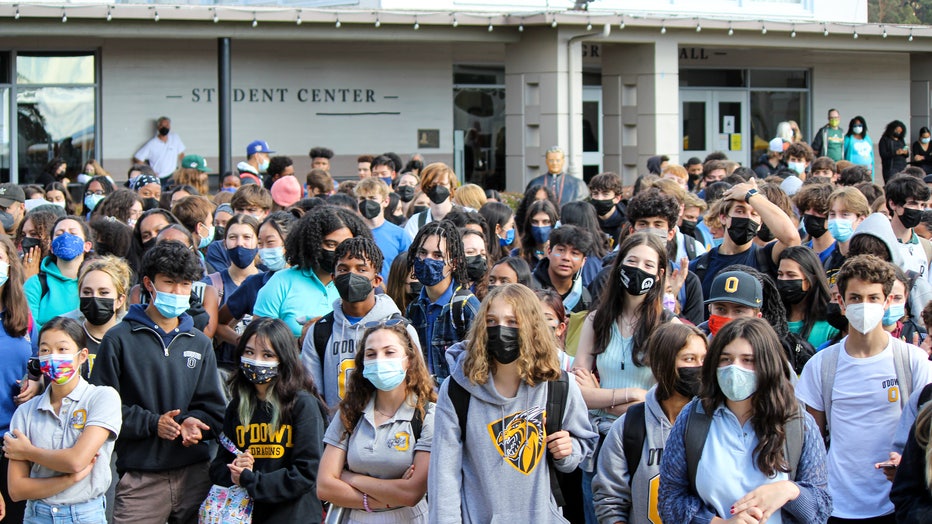
Students speak out against sexual violence at Bishop O'Dowd High School in Oakland on Sept. 27, 2021. Photo: Elyse Brill
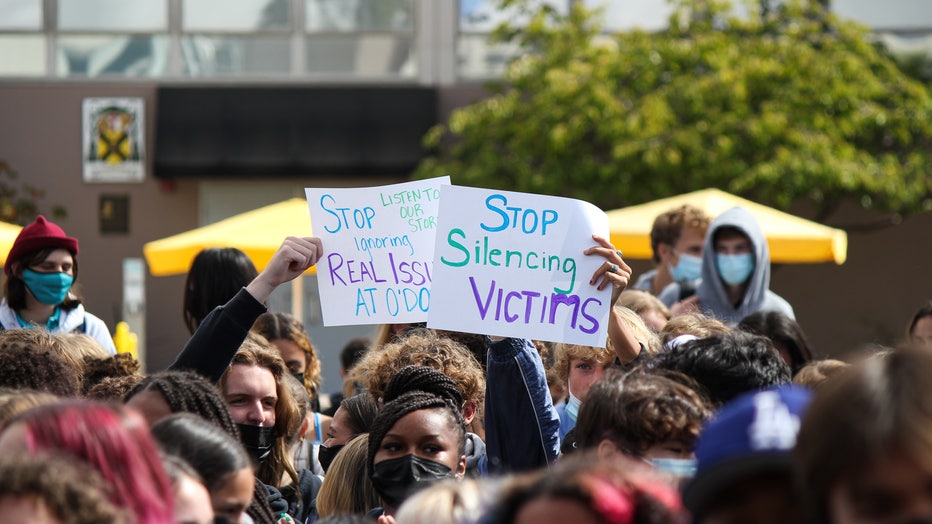
Students speak out against sexual violence at Bishop O'Dowd High School in Oakland on Sept. 27, 2021. Photo: Elyse Brill
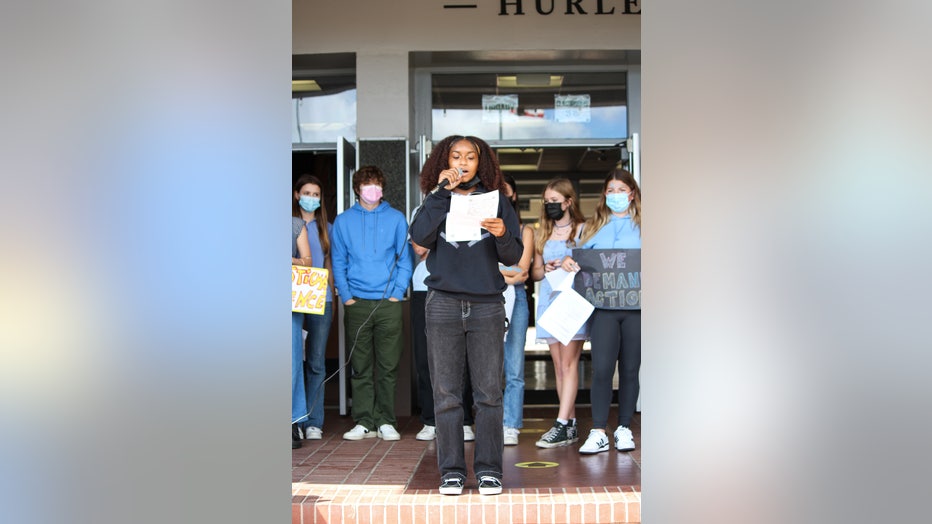
Students speak out against sexual violence at Bishop O'Dowd High School in Oakland on Sept. 27, 2021. Photo: Elyse Brill
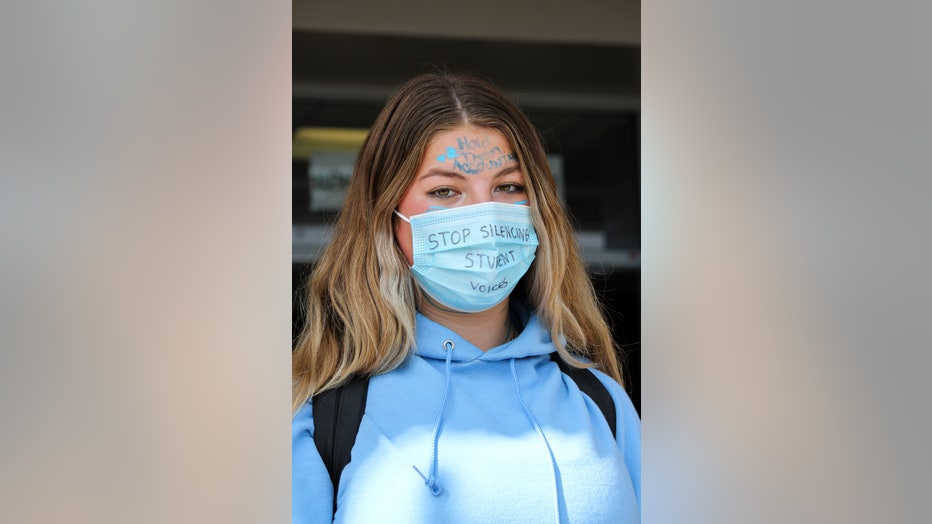
Students speak out against sexual violence at Bishop O'Dowd High School in Oakland on Sept. 27, 2021. Photo: Elyse Brill
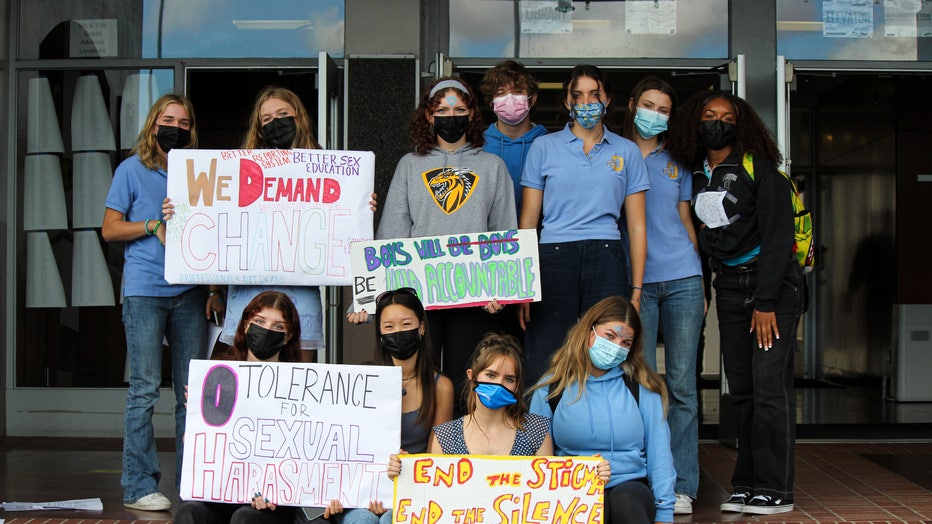
Students speak out against sexual violence at Bishop O'Dowd High School in Oakland on Sept. 27, 2021. Photo: Elyse Brill
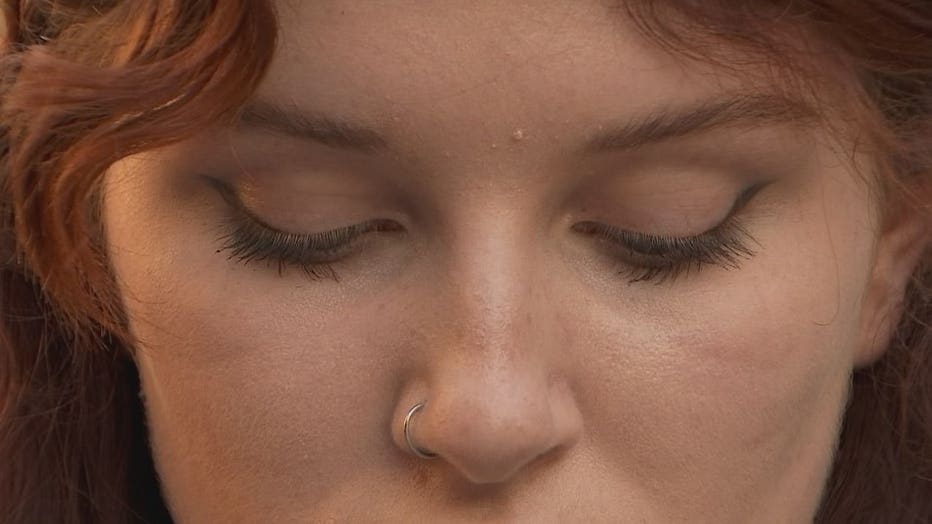
Sylvie Richards, a senior at Bishop O'Dowd, said she feels that the education about consent on campus is little to none. And she also feels that survivors are not taken seriously enough.
Lisa Fernandez is a reporter for KTVU. Email Lisa at lisa.fernandez@fox.com or call her at 510-874-0139. Or follow her on Twitter @ljfernandez

